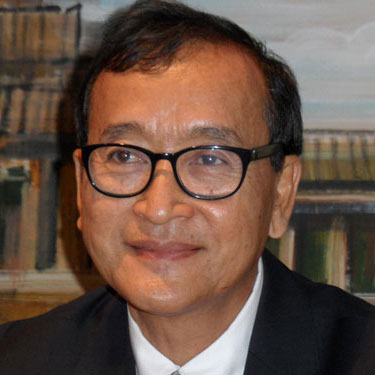Russia’s war on Ukraine may prove to be the turning point when the free countries of the world realized that democratic freedoms have to be actively defended.
From a historical perspective, the fall of the Berlin Wall, the end of Communist regimes in eastern Europe and the collapse of the Soviet Union led to overconfidence in the West that the global struggle for democracy had been won. Some even proclaimed the end of history. Of course, no such thing had happened. Just as “late capitalism” leads to more capitalism, so “late history” leads to more history.
The invasion of Ukraine and the massive human displacement and suffering it has caused shows that Communism and dictatorship are still active threats in the world. The invasion was not a snap decision by Vladimir Putin, nor a sign of a sick man out of touch with reality. He prepared the invasion for years, and it is the logical extension of his world view that the Soviet Union should not have caved in.
For many people in Southeast Asia, the Cold War never really went away. An aggressive and bellicose China continues to pose a threat to the stability of the whole region. Cambodia is a small but important pawn on the chess board. Prime Minister Hun Sen, formerly a commander in the Khmer Rouge, has been in power since well before the fall of the Berlin Wall. Like Putin, he is a leopard who has not changed his spots.
In recent years he has acted increasingly like the obedient governor of a minor Chinese province rather than the leader of a national government. China views Cambodia as a key ally within the Association of Southeast Asian Nations (ASEAN), which is chaired by Cambodia in 2022. Beijing has been willing to supply military equipment to the Cambodian regime, and has made opaque loans which a country like Cambodia can’t hope to repay.
Candle in the Darkness
The democratic cause in Cambodia is bruised but not broken. The main opposition party which I co-founded in 2012, the Cambodia National Rescue Party (CNRP) , was dissolved by Cambodia’s politically subservient supreme court in 2017 after scoring 45% in local elections. This score was achieved despite well documented intimidation and violence against CNRP supporters, as well as numerous electoral irregularities in favour of the ruling party.
The 2017 score suggested that the CNRP had every chance of winning the national elections of 2018, a risk which Hun Sen was unwilling to contemplate. So he simply had the CNRP closed down and the government awarded itself all the national assembly seats in a farcical parody of a real election.
Such a strategy works in the short term but not in the long term. Local elections arrive again in Cambodia on June 5. There is a vehicle for opposition in the shape of the Candlelight Party, which I first registered as a party in 1995. The party will contest virtually every commune in the election and is the only opposition party in Cambodia which is able to do so.
The international community has clearly become more sensitive to the need to defend freedoms which it had been tempted to imagine were already secure. This trend was already in place with the renewed emphasis of the Joe Biden administration in the US on the defense of global democracy. The recent election victory for the Australian Labor Party may come to be seen as a continuation of the trend.
In the Cambodian case, now is the time for maximum vigilance and pressure. The pressure on Hun Sen so far has at least meant that he is unwilling to ban Candlelight outright at this stage. But the old pattern of intimidation and violence to persuade people against running as candidates is already in evidence. And if Candlelight does well in the local elections, Hun Sen’s instinct will be to ban the party ahead of national elections scheduled for July 2023.
Allowing Cambodia and Myanmar to form a brutal, authoritarian core at the heart of ASEAN is an ideal scenario for China, but intolerable for the populations concerned and damaging to the interests of the free world. The international community must make it clear to Hun Sen that banning the opposition is unacceptable and would have serious consequences. Cambodia needs and deserves better than Hun Sen’s plan to hand over to one of his sons as future prime minister to ensure his own legal impunity for the crimes he has committed once he stands down.
[Header image: Candlelight party supporters in Phnom Penh campaigning for the June 5 election]
The views and opinions expressed in this article are those of the author.

Sam Rainsy, Cambodia’s finance minister from 1993 to 1994, is the co-founder and acting leader of the opposition Cambodia National Rescue Party (CNRP).

